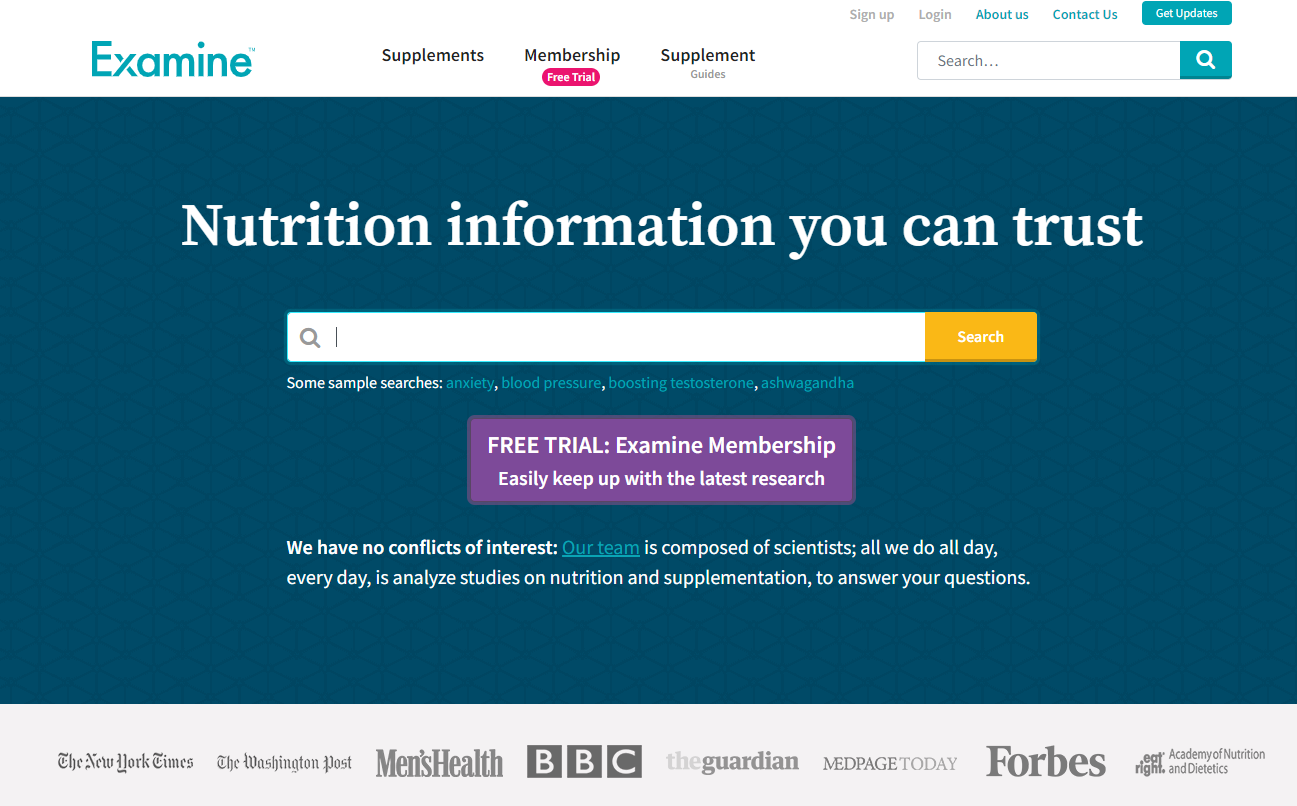
What we put into our bodies affects our physical and mental health. Doing this without guidance can lead to problems. Examine is a website that keeps you informed about supplements and their impacts on different health conditions. In this post, I discuss where it might be useful. Reading time ~ 4 minutes.
I was listening to a podcast this morning from Andrew Huberman.
He was discussing tools to optimise sleep.
During the podcast he made mention of a number of supplements – Magnesium Threonate, Apigenin & Theanine.
I have a very conflicted history with supplements and a high degree of scepticism.
In my 30’s I struggled with the emergence of an uncomfortable muscle condition (ultimately diagnosed as cramp fasciculation syndrome). I saw many people ranging from GP’s to medical specialists to naturopaths trying to work out the cause and how to treat it.
I spent thousands of dollars on treatments and supplements that were suggested to be beneficial but provided little benefit but maximum bank drain.
During that time I became highly sceptical of the supplement industry and the usage of them by everyday peeps. I basically settled on the view that in the absence of a medically diagnosed deficiency (e.g. iron deficiency, b12 deficiency), there was likely little value for people in taking supplements over and beyond a generally diverse and healthy diet.
That view has softened a little in recent years having seen people work with health professionals to implement and trial certain supplements with some success. Note the ‘work with health professional‘. We should not be self-diagnosing conditions, deficiencies and then choosing supplements for ourselves.
But for those who already have diagnosed conditions and have a trusted health professional they can work with, there is a website that can help navigate through the complex world of supplements.
It is called examine.com
Examine.com is a massive database of nutrition and supplement research that is designed to give guidance on what supplements work for what conditions. You can search/browse by supplement or health condition. They don’t tell you what to take, but they tell you what the evidence is for different supplement and nutrition interventions so you can make better informed decisions.
Examine.com generate their revenue from subscriptions and not from industry ties or advertising. The upside of this is less conflict of interest. There aren’t financial incentives for them to bias the presentation of the research. The downside is that some site functionality is only accessible with a membership.
However, if you have been recommended a supplement, you can search for that supplement and view the evidence that exists for whether it benefits any health or mental health conditions you might have. It is only once you start searching for specific conditions where some of the subscription limitations come into being.
Again, I stress that any supplementation you undertake should be done with full knowledge of a health professional (e.g. GP). Supplements can interact with medications or cause side effects if taken incorrectly. At best you might be paying good money to flush most of the supplement down the toilet. At worst, you might be taking something that does you harm.
I also recommend that you look first at improvements to sleep, nutrition, physical activity, stress management and behavioural tools for improving productivity before turning to supplementation.
But if you do, examine.com may be a good guide in the process.
Another site of a similar vein is NutritionFacts which focuses on evaluating the nutrition literature to give you guidance on healthy eating.


